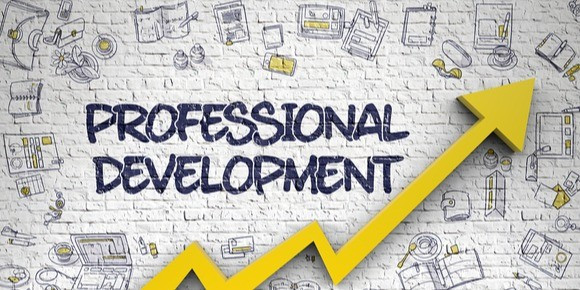
Professional Development: A Key to Career Advancement and Personal Growth
In today’s rapidly evolving job market, professional development has become a cornerstone for career success and personal growth. It involves the continuous process of acquiring new skills, knowledge, and experiences that enhance an individual’s capabilities and career prospects. This article explores the importance of professional development, its various forms, and how individuals can effectively engage in it to achieve their career goals.
The Importance of Professional Development
Adaptability to Change: The modern workplace is characterized by constant change driven by technological advancements, market dynamics, and evolving business practices. Professional development enables individuals to stay updated with the latest trends and innovations in their field, making them adaptable to changes and more resilient in the face of industry shifts.
Career Advancement: Continuous learning and skill enhancement are critical for career progression. Employers value employees who are proactive about their professional growth. Engaging in professional development activities can lead to promotions, salary increases, and greater job security.
Increased Job Satisfaction: Professional development fosters a sense of achievement and fulfillment. When individuals invest in their growth, they feel more competent and confident in their roles, leading to higher job satisfaction and motivation.
Enhanced Skill Set: Professional development helps in acquiring both hard skills (technical abilities specific to a job) and soft skills (such as communication, leadership, and teamwork). A well-rounded skill set makes employees more versatile and valuable to their organizations.
Networking Opportunities: Many professional development activities, such as workshops, conferences, and seminars, provide opportunities to meet and network with industry peers. Building a robust professional network can lead to new career opportunities and collaborations.
Forms of Professional Development
Professional development can take various forms, catering to different learning styles and career needs. Here are some common types:
Formal Education: Pursuing higher education degrees, certifications, and courses related to one’s field. This can include part-time or full-time studies at universities or specialized training institutions.
Workshops and Seminars: Short-term, intensive learning sessions focused on specific topics or skills. These are often conducted by industry experts and provide practical knowledge and insights.
Online Courses and Webinars: The advent of e-learning platforms has made professional development more accessible. Online courses and webinars offer flexibility, allowing individuals to learn at their own pace and convenience.
On-the-Job Training: Many organizations provide training programs that enable employees to develop new skills while working. This can include mentorship programs, cross-training, and job rotations.
Professional Associations and Conferences: Joining industry-specific associations and attending conferences can provide access to the latest research, best practices, and networking opportunities.
Self-Directed Learning: This involves proactive efforts by individuals to learn new skills or knowledge independently. Reading industry publications, listening to podcasts, and engaging in self-study are examples of self-directed learning.
Strategies for Effective Professional Development
To maximize the benefits of professional development, individuals should approach it strategically:
Set Clear Goals: Identify specific career objectives and determine the skills or knowledge needed to achieve them. Setting clear, measurable goals helps in selecting the most relevant professional development activities.
Create a Development Plan: Develop a structured plan outlining the steps to achieve your professional goals. Include timelines, resources needed, and milestones to track progress.
Seek Feedback: Regular feedback from supervisors, peers, and mentors can provide valuable insights into areas for improvement. Constructive feedback helps in fine-tuning skills and addressing weaknesses.
Stay Committed: Professional development requires a commitment of time and effort. Stay dedicated to continuous learning, even when faced with challenges or setbacks.
Leverage Employer Support: Many organizations offer support for professional development through funding, time off for study, or in-house training programs. Take advantage of these opportunities to enhance your growth.
Reflect and Adapt: Periodically assess the impact of your professional development activities on your career. Reflect on what has been effective and make necessary adjustments to your development plan.
Conclusion
Professional development is a lifelong journey that plays a crucial role in career advancement and personal growth. By staying committed to continuous learning and skill enhancement, individuals can remain competitive in the job market, achieve their career aspirations, and find greater satisfaction in their professional lives. Whether through formal education, workshops, online courses, or self-directed learning, the opportunities for professional development are vast and varied. Embracing these opportunities can lead to a more fulfilling and successful career.


Thank you for the news.